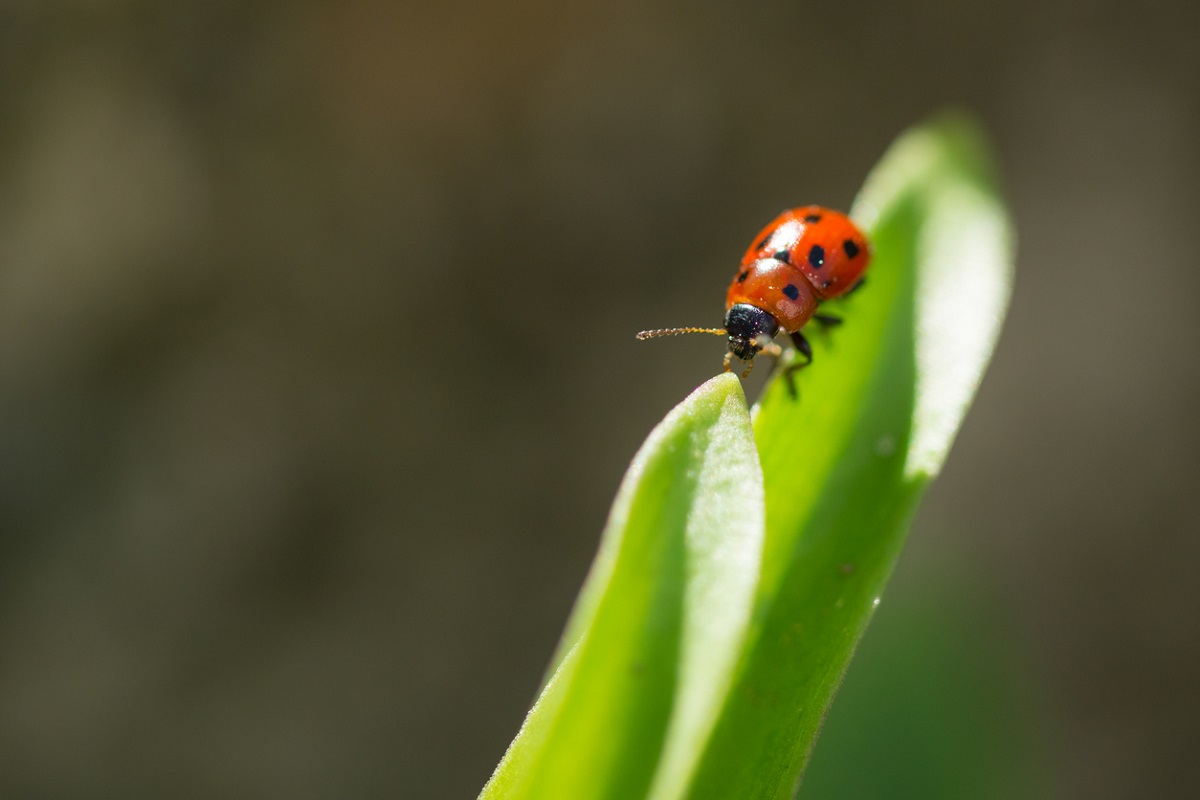
Transgenic Maize Does Not Cause Harm to Non-Target Organisms
April 6, 2022| |
A team of scientists from China and Switzerland studied the effects of pollen from genetically engineered (GE) maize on the ladybird beetle using omics approaches with feeding assays. Results found that the pollen may not lead to biologically relevant effects on the insect and the method is a useful strategy to assess biological impacts of GE on non-target organisms (NTOs).
The scientists used a total of 10 maize lines consisting of three GE lines and seven hybrid lines. Maize seeds were sown in a field station located in Gongzhuling City in China and were grown in the same environmental conditions. Pollen was collected during maize anthesis from each line and was subjected to combined omics and feeding assays to determine the effects on the ladybird beetle Propylea japonica.
The findings showed that genetic engineering caused the same differences in the proteome and metabolome levels of the maize pollen as with those observed in conventionally crossbred plants. These differences did not lead to unintended effects on NTOs that exceeded those observed on conventional crossbred lines. They concluded that the differences detected by omics experiments may not cause any biological relevant effects on NTOs, and that the methods they used are a valid approach to evaluate the biological relevance of compositional effects of genetic breeding.
For more details, read the full study published by Plants People Planet.
| |
You might also like:
- Bt Maize (MON 88017) Does Not Cause Harm to Non-target Organisms
- Meta-analysis: Bt Maize No Effect on 26 NTO in Spain
- Meta-analysis Shows Bt Maize Does Not Affect NTOs
Biotech Updates is a weekly newsletter of ISAAA, a not-for-profit organization. It is distributed for free to over 22,000 subscribers worldwide to inform them about the key developments in biosciences, especially in biotechnology. Your support will help us in our mission to feed the world with knowledge. You can help by donating as little as $10.
-
See more articles:
-
News from Around the World
- Hidden DNAs Uncovered as Human Genome is Completely Sequenced
- Whole Genome Resequencing of Sorghum Provides Insights for Crop Improvement
- BNI-enhanced Wheat Research Wins 2021 Cozzarelli Prize by PNAS
- Science Diplomacy to Provide Platforms for Sustainable Development
- Research Team Finds A Single Gene Can Affect Entire Ecosystem
-
Research Highlights
- Transgenic Maize Does Not Cause Harm to Non-Target Organisms
- Overexpression of Cowpea NAC Genes Promotes Growth and Stress Tolerance in Arabidopsis
- Gene That Controls Self-Pollination in Plants Identified
-
Read the latest: - Biotech Updates (December 3, 2025)
- Gene Editing Supplement (November 26, 2025)
- Gene Drive Supplement (February 22, 2023)
-
Subscribe to BU: - Share
- Tweet

